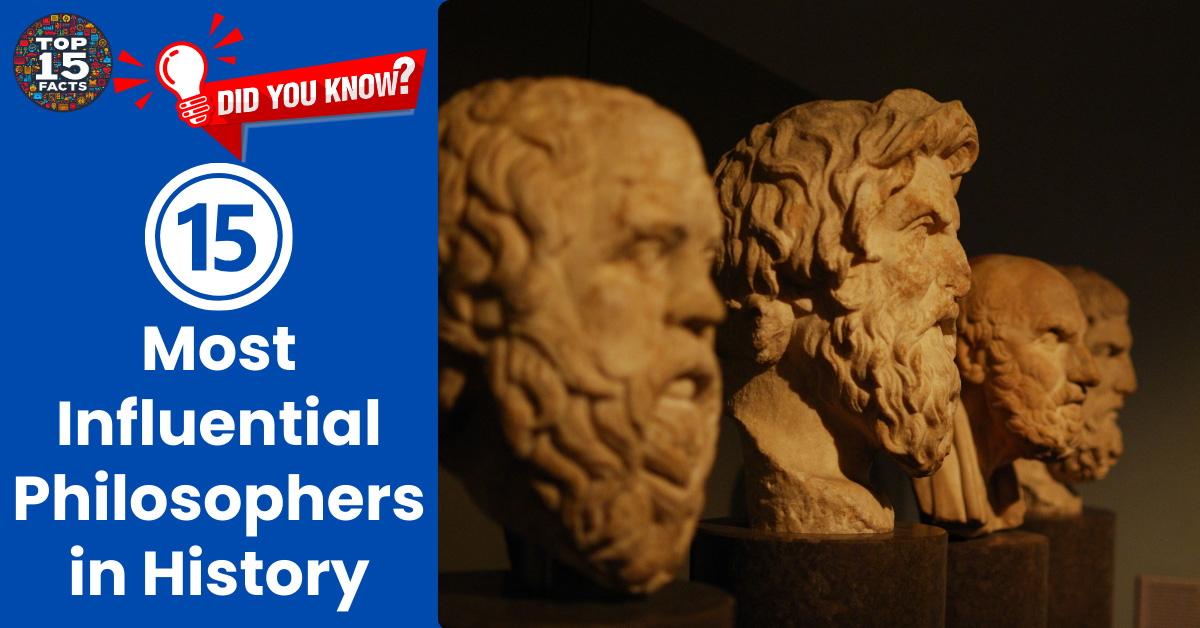Have you ever wondered about big questions like what existence means and what knowledge really is? Philosophy looks into these deep questions to find truths about our world. From ancient Greece to today, philosophers have explored ideas about reality, ethics, and human nature. In this blog post, we will journey through the lives and ideas of 15 philosophers who have made a lasting impact on history. Ready to explore their wisdom? Let’s get started!
The List of Most Influential Philosophers:
- Socrates (470-399 BCE) – Known for his Socratic method of questioning, encouraging critical thinking and self-examination.
- Plato (428-348 BCE) – Founded the Academy and explored the nature of reality through his renowned work “The Republic.”
- Aristotle (384-322 BCE) – A polymath who shaped fields from ethics to metaphysics with his systematic approach.
- Epicurus (341-270 BCE)- A Greek philosopher who founded the Epicurean school in Athens.
- Immanuel Kant (1724-1804) – Pioneered moral absolutism and the categorical imperative, reshaping modern ethics.
- René Descartes (1596-1650) – Famous for his foundational phrase “I think, therefore I am,” sparking modern philosophy.
- John Locke (1632-1704) – Advocated natural rights and the social contract theory, influencing democratic principles.
- David Hume (1711-1776) – Introduced empiricism and skepticism, challenging conventional beliefs in philosophy.
- Friedrich Nietzsche (1844-1900) – Critiqued morality and introduced the concept of the “Übermensch” or Superman.
- Karl Marx (1818-1883) – Pioneered communism and analyzed societal structures through his dialectical materialism.
- Bertrand Russell (1872-1970) – Advanced logical analysis and advocated for social justice and pacifism.
- Martin Heidegger (1889-1976) – Explored the concept of “Being-in-the-world” and its existential implications.
- Simone de Beauvoir (1908-1986) – Contributed to existentialism and feminism, emphasizing freedom and responsibility.
- Karl Popper (1902-1994) – Championed falsifiability in science and defended liberal democracy.
- Averroes (1126-1198) – Integrated Aristotelian thought with Islamic theology, influencing both realms profoundly.
1. Socrates (470-399 BCE)
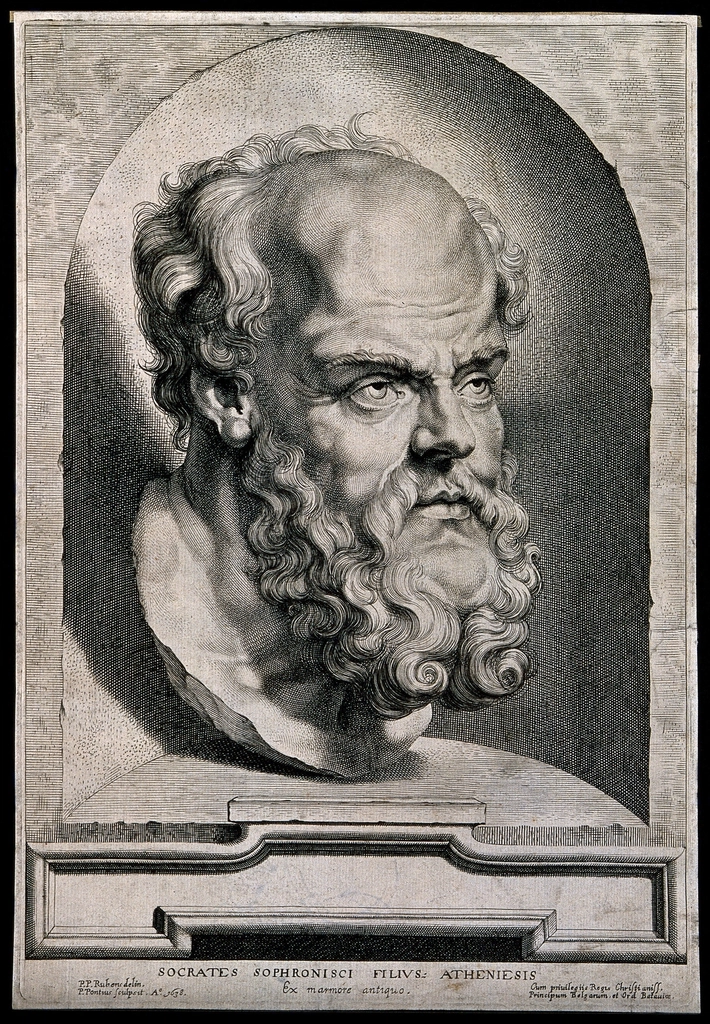
Socrates is celebrated as a key figure in Western philosophy. We know about his ideas from his students, like Plato and Xenophon. Socrates focused on seeking wisdom and knowing oneself. He believed true knowledge comes from questioning and thinking deeply, not from being taught.
The Socratic method, created by Socrates, uses questions to encourage critical thinking and uncover hidden assumptions. This method is still used today in fields like law, medicine, and education.
2. Plato (428-348 BCE)
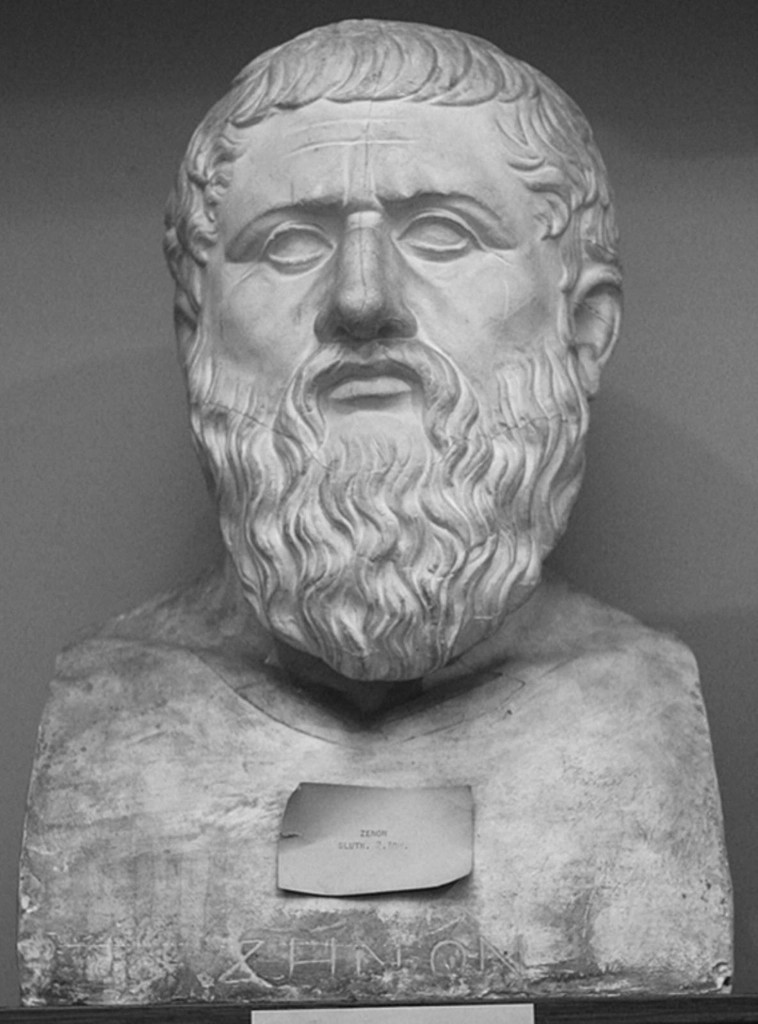
Plato was a student of Socrates and an important figure in Western philosophy. He started the Academy in Athens, one of the first schools of higher learning in the West. Plato focused on understanding reality and the idea of perfect Forms. He believed that the physical world is just a reflection of a higher world of Forms or Ideas.
Plato’s writings, like The Republic, have greatly influenced politics, ethics, and metaphysics. His ideas about reality and the perfect society have impacted many thinkers. The Academy he founded became a key place for sharing ideas and shaping philosophy for many years.
Read more: An Introduction to Plato and His Philosophical Ideas
3. Aristotle (384-322 BCE)

Aristotle was a student of Plato and taught Alexander the Great. He made big contributions to philosophy, science, and ethics. Aristotle studied nature, human nature, and happiness. He introduced the idea of four causes: material, formal, efficient, and final. These helped him explain how things work.
Aristotle’s ideas on logic, metaphysics, and ethics have greatly influenced Western thinking. He focused on observation, experience, and reason. This helped form the scientific method. Aristotle’s thoughts on purpose and the good life are still important today.
Read More: Top 15 Facts About the Most Expensive Artworks
4. Epicurus (341-270 BCE)
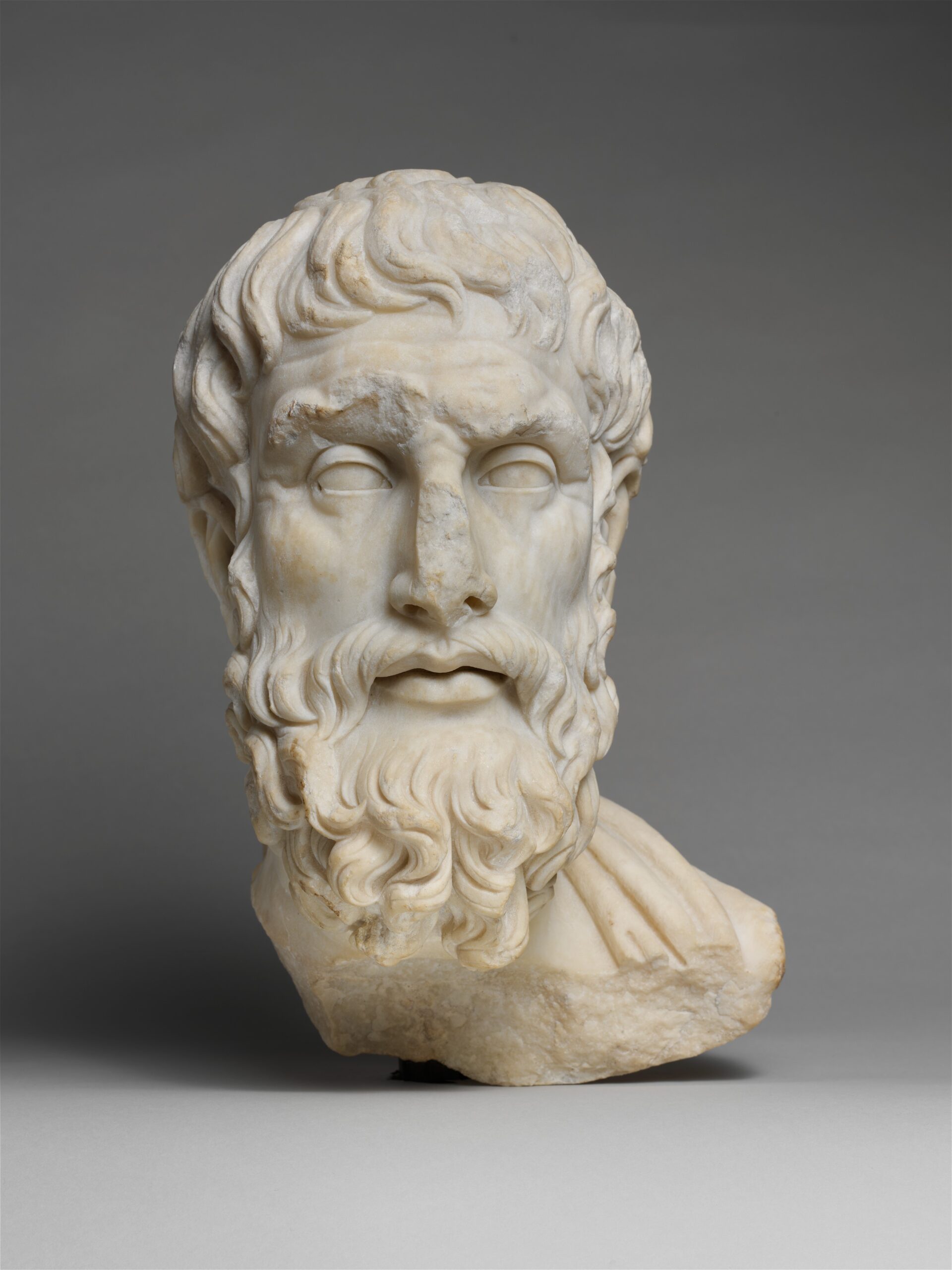
Epicurus was a Greek philosopher who started the Epicurean school in Athens. He believed that the goal of life is to be happy. To achieve happiness, we should avoid physical pain and mental stress, not just seek pleasure. Epicurus also thought the universe is made of tiny, indivisible particles called atoms.
Epicurus focused on the idea of hedone, which means pleasure is the main goal of life. But he also believed that not all pleasures are good. Some pleasures can lead to pain and suffering later on.
5. Immanuel Kant (1724-1804)
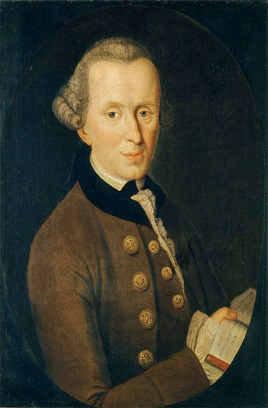
Immanuel Kant was a famous 18th-century German philosopher. He made important contributions to ethics, metaphysics, and knowledge. Kant focused on what we can know and how we understand morality. He said that while we can’t fully know the “things in themselves,” we can understand how we see and interact with the world.
Kant introduced the idea of the categorical imperative in his ethical theory. This means we should act according to rules that everyone could follow. This idea has greatly influenced modern ethics, political theory, and aesthetics.
Read more: Immanuel Kant and The One Rule for Life
6. René Descartes (1596-1650)
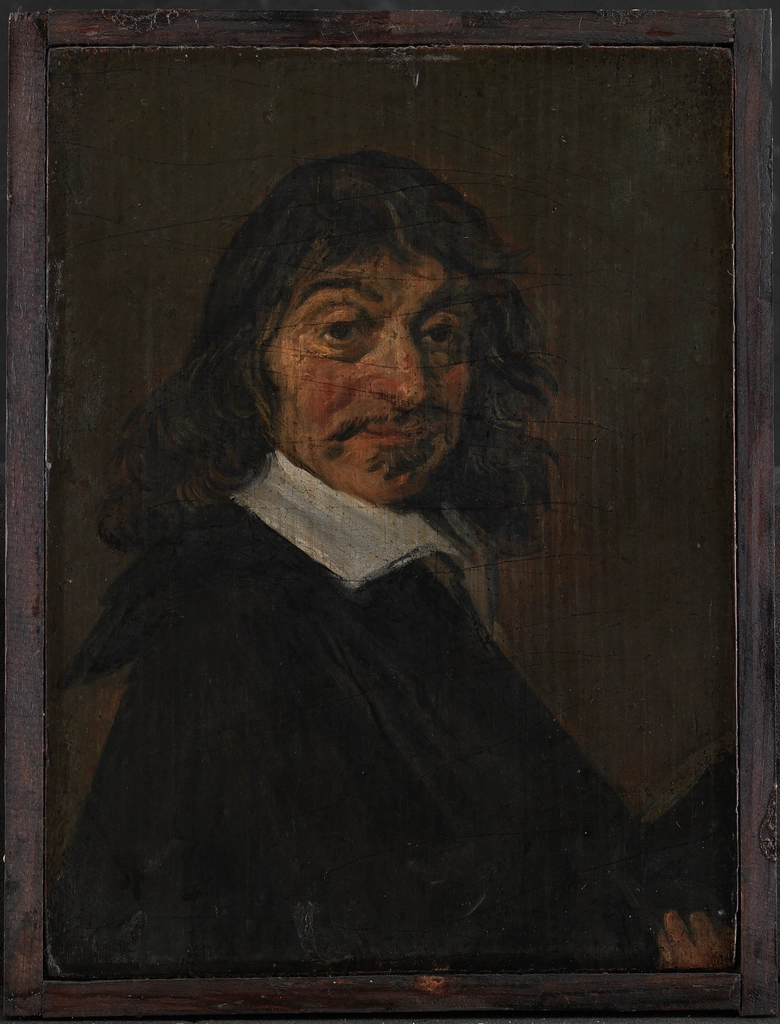
René Descartes was a French philosopher and mathematician. He is often called the father of modern Western philosophy. Descartes is famous for saying, “I think, therefore I am” (Cogito, ergo sum). This shows his belief that our own existence is certain because we think.
Descartes used a method called Cartesian doubt. This means he questioned everything to find a solid base for knowledge. His ideas about skepticism and reason have greatly influenced modern philosophy, science, and psychology. Descartes’ thoughts still impact how we understand knowledge and existence.
Read More: Top 15 Surprising Facts About Shakespeare’s Plays That Will Blow Your Mind
7. John Locke (1632-1704)
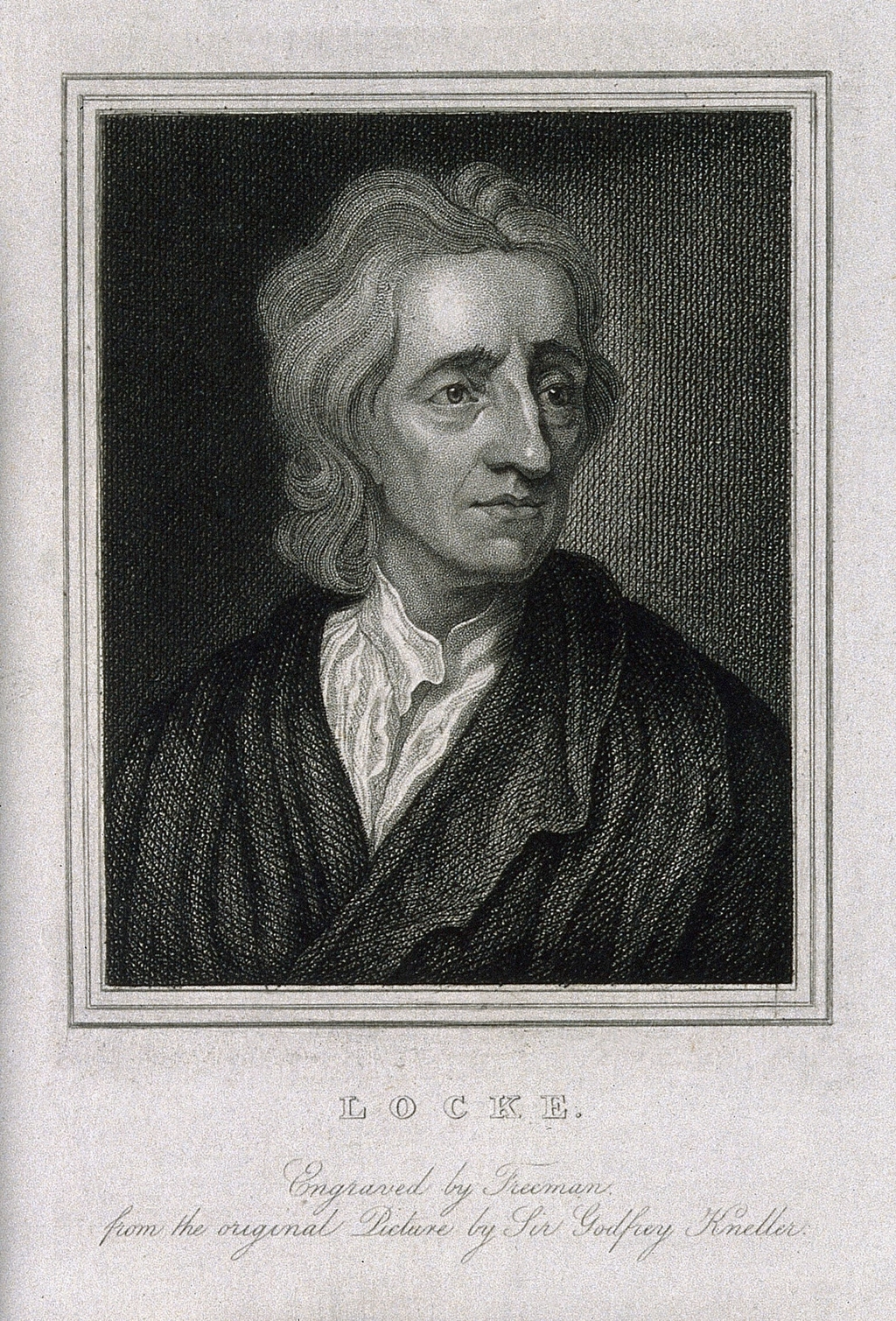
John Locke, was a 17th-century English philosopher. He influenced politics, knowledge, and metaphysics. Locke believed that knowledge comes from experience. He thought everyone has natural rights to life, liberty, and property. His ideas shaped modern democracy.
In his book Two Treatises of Government, Locke said the government’s main job is to protect people’s rights. He also said people can revolt if the government fails. Locke’s ideas were important in the American Revolution and the growth of liberal democracy.
8. David Hume (1711-1776)
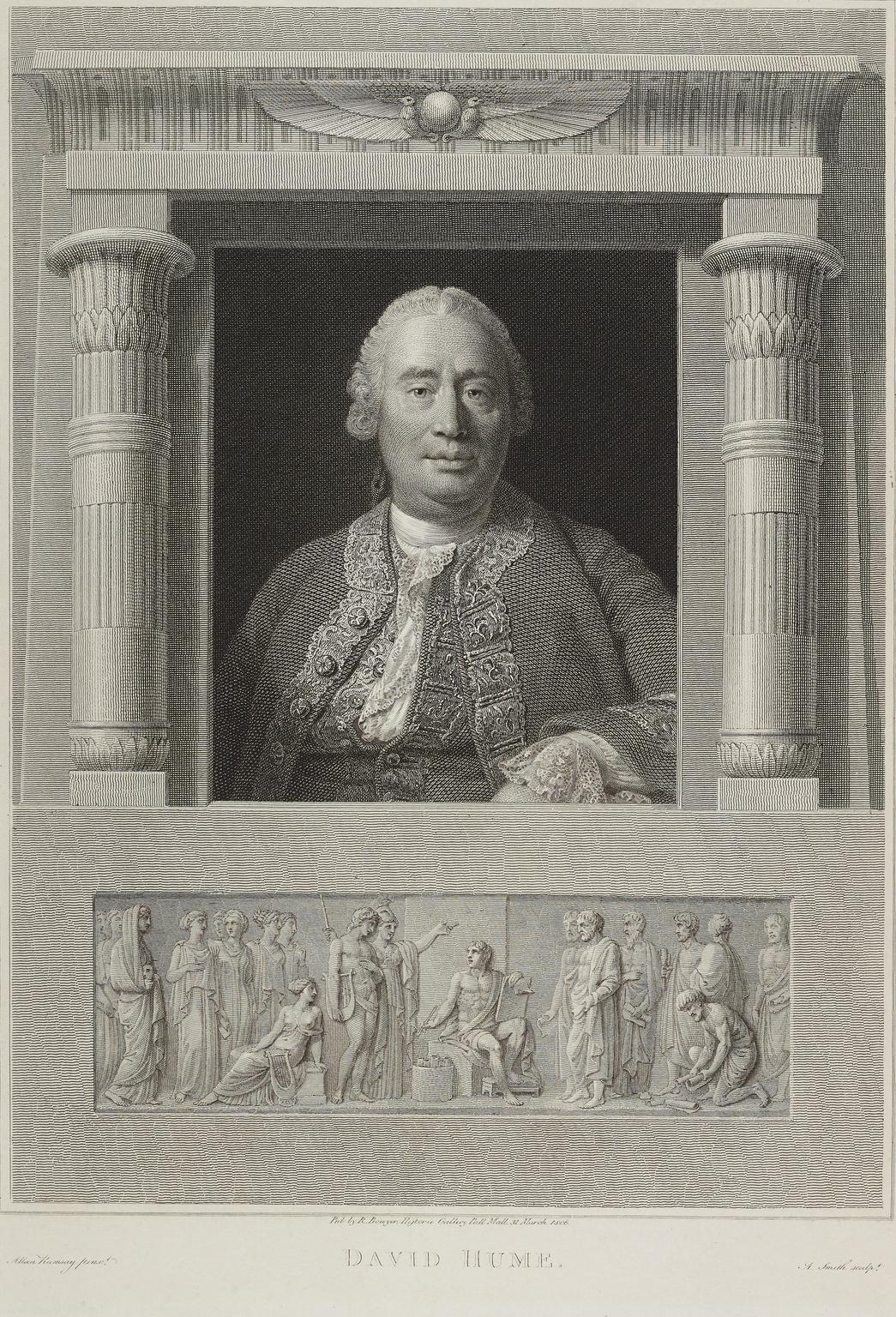
David Hume was a Scottish philosopher and historian. He is known for his work in knowledge, reality, and morals. Hume challenged old ideas about cause and effect and human nature. He said that knowledge is only what we can experience. Hume believed that moral judgments come from feelings, not reason.
Hume’s empiricism focused on sensory experience. He said our understanding of the world comes from what we sense. Hume questioned the need for causality, suggesting it is just a mental habit from seeing things happen repeatedly.
9. Friedrich Nietzsche (1844-1900)
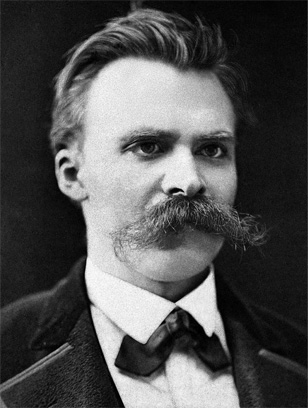
Friedrich Nietzsche was a German philosopher. He is known for criticizing traditional morality and introducing the idea of the “Übermensch” or Superman. Nietzsche argued that people should create their own values instead of following traditional norms
Nietzsche’s statement that “God is dead” showed the decline of traditional religious and moral beliefs. His ideas of the “Will to Power” and the “Übermensch” have greatly influenced existentialism, postmodernism, and critical theory. Nietzsche’s bold ideas still provoke debate and reflection.
Read more: Friedrich Nietzsche: The Best 9 Books to Read
10. Karl Marx (1818-1883)
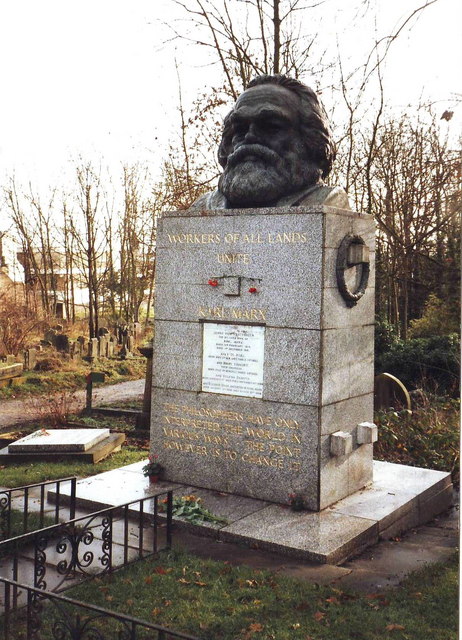
Karl Marx was a German philosopher and economist. He is best known for his ideas about capitalism and socialism. Marx studied the struggle between different economic classes. He believed that history is shaped by these conflicts.
Marx said that the working class (proletariat) would rise up against the capitalist class (bourgeoisie). He thought this would create a fairer society. Marx’s ideas about class struggle and alienation have influenced political and economic thought. They have shaped socialist and communist movements around the world.
Read more : Karl Marx: His Books, Theories, and Impact
11. Bertrand Russell (1872-1970)
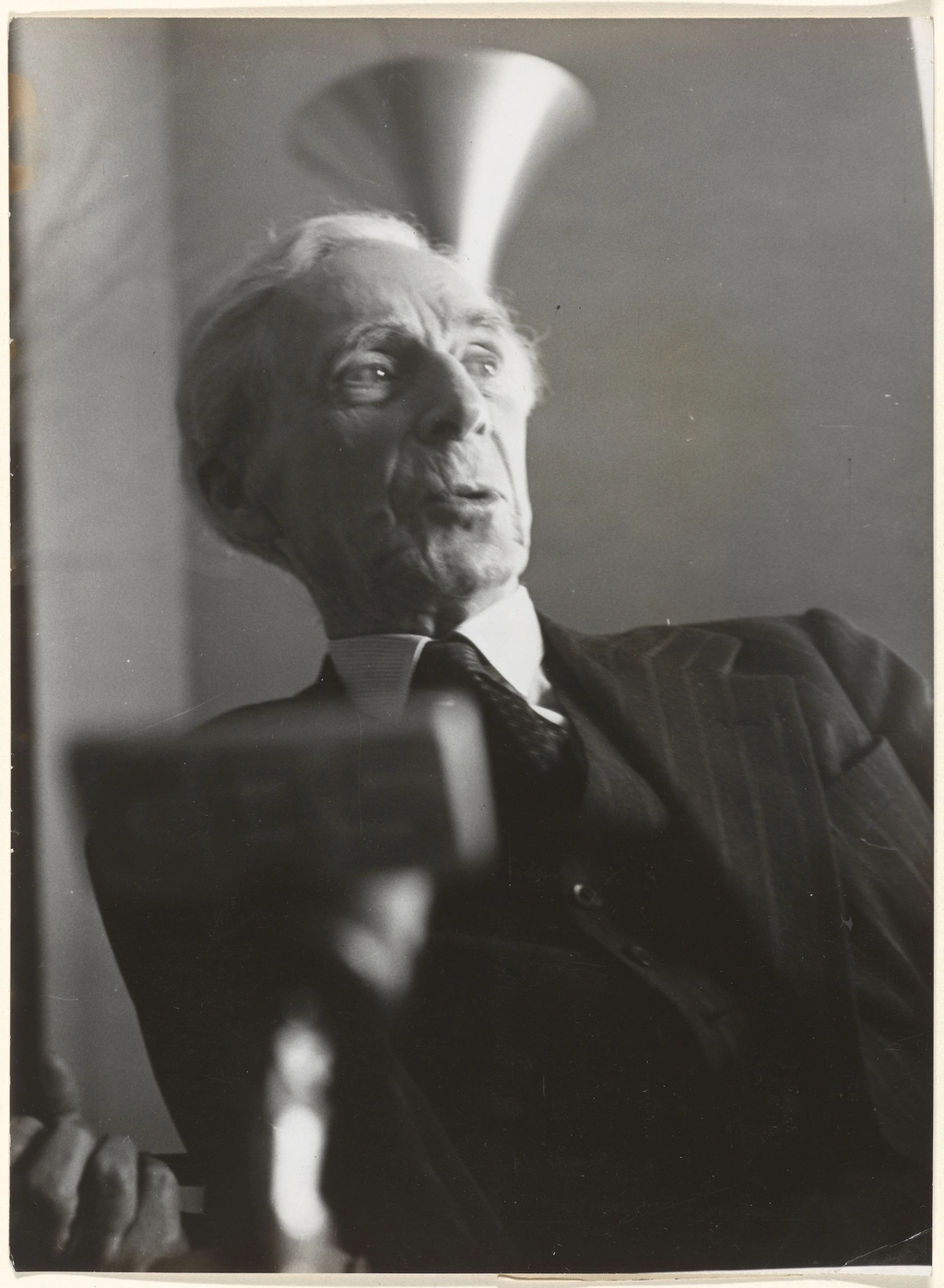
Bertrand Russell was a British philosopher and logician. He changed how we think about philosophy. Russell is known for analytic philosophy. He used logic to make ideas and language clearer. This way of thinking had a big impact on modern philosophy.
Russell also created type theory. He supported neutral monism. This idea says that both mind and matter come from the same basic substance. His ideas have influenced philosophy, math, and social theory. They still affect academic and political discussions today.
Read More: Top 15 Surprising Facts About James Patterson
12. Martin Heidegger (1889-1976)
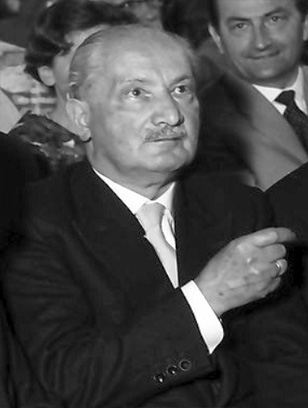
Martin Heidegger was a German philosopher. He is famous for his work in existentialism and phenomenology. Heidegger studied human existence, being, and time. He introduced the idea of “Being-in-the-world.” This concept explains how we connect with our surroundings and technology.
Heidegger also talked about “the Event” (das Ereignis). This means moments of deep insight or revelation. His ideas help us see how these moments can change our view of reality.
13. Simone de Beauvoir (1908-1986)

Simone de Beauvoir was a French philosopher and feminist. She made important contributions to existentialism and feminist theory. Her work focused on freedom, responsibility, and the human condition. In her book The Second Sex, de Beauvoir examined women’s lives and argued for gender equality.
She introduced the idea of “the Other.” This shows how people relate to each other and the importance of accepting life’s complexity. De Beauvoir’s ideas still influence discussions about gender and identity
14. Karl Popper (1902-1994)
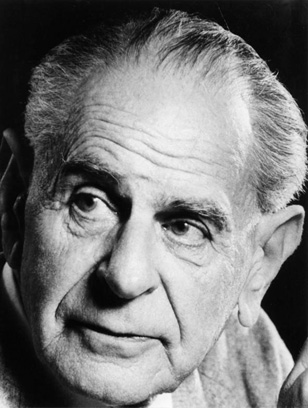
Karl Popper was an Austrian-British philosopher. He is known for his ideas about science and concept of falsifiability. Popper said that scientific theories can’t be proven true, only proven false. This means testing and observing are very important in science. For Popper, testing and rejecting theories helps science move forward.
Popper also wrote about politics. He believed in an open society and individual freedom. His ideas on critical thinking and an open society have affected science, politics, and philosophy.
15. Averroes (1126-1198)
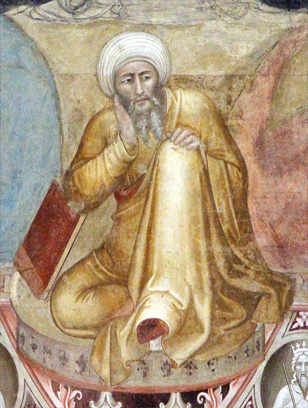
Averroes was a Spanish-Arab philosopher and doctor. He is best known for his writings on Aristotle’s works. Averroes believed that philosophy and religion can go together and that seeking knowledge is a key part of being human. His mix of Aristotle’s ideas with Islamic thought had a big impact.
He also proposed monopsychism, the idea that all humans share single intellect. Averroes helped preserve and spread Greek philosophy in the medieval Islamic world. His work influenced later thinkers and shaped intellectual history.
Final note:
Philosophy helps us understand and explore the world. The thinkers we’ve discussed in this article have greatly added to our shared knowledge. From Socrates seeking self-knowledge to Kant studying moral principles, these philosophers have influenced our views on ethics, politics, and existence.
15 FAQs (Frequently Asked Questions):
-
Why was Socrates sentenced to death?
Socrates was sentenced to death by drinking poison hemlock for allegedly corrupting the youth of Athens and impiety, or not recognizing the gods of the city.
-
What is “The Republic” about?
“The Republic” is Plato’s dialogue exploring justice, the just city-state, and the just individual. It includes Plato’s ideas on the ideal society, the philosopher-king, and the allegory of the cave.
-
What is Aristotle’s concept of the “Golden Mean”?
The “Golden Mean” is Aristotle’s ethical concept that virtue lies between extremes. For instance, courage is a virtue that lies between recklessness and cowardice.
-
How did Epicurus view the gods?
Epicurus believed that gods exist but are indifferent to human affairs. He argued that fear of divine retribution causes unnecessary anxiety and disrupts peace of mind.
-
How did Kant differentiate between “a priori” and “a posteriori” knowledge?
“A priori” knowledge is independent of experience and can be known through reason alone, such as mathematical truths. “A posteriori” knowledge is derived from sensory experience and empirical evidence.
-
What does “Cogito, ergo sum” mean?
“Cogito, ergo sum,” or “I think, therefore I am,” is Descartes’ assertion of self-awareness and existence. It signifies that the act of thinking is proof of one’s existence.
-
What is Locke’s social contract theory?
Locke’s social contract theory suggests that governments are formed through the consent of the governed to protect natural rights. If a government fails in this duty, citizens have the right to revolt.
-
What is Hume’s position on causation?
Hume argued that causation is not a directly observable phenomenon but a habit of thought. We infer cause-and-effect relationships based on repeated patterns of experience, rather than having a rational basis for them.
-
What does Nietzsche mean by “God is dead”?
Nietzsche’s statement “God is dead” reflects the decline of traditional religious and metaphysical beliefs in the modern world. It signifies a cultural shift towards secularism and the need for new values and meaning.
-
What is Marx’s theory of historical materialism?
Historical materialism is Marx’s theory that the economic base of society (the mode of production) fundamentally shapes the social, political, and ideological superstructure. History is driven by class struggles and economic forces.
-
What is Russell’s philosophy of logical positivism?
Logical positivism, which Russell helped develop, emphasizes that meaningful statements are either empirically verifiable or analytically true. It seeks to eliminate metaphysical and theological claims that cannot be empirically tested.
-
What is the concept of “Being-in-the-world”?
Heidegger’s concept of “Being-in-the-world” refers to the way individuals are always engaged with and situated within their environment. It highlights the interconnectedness of existence, context, and experience.
-
How does de Beauvoir’s existentialism address freedom and responsibility?
De Beauvoir’s existentialism stresses that individuals must take responsibility for their choices and actions, emphasizing the importance of personal freedom and the role of women in defining their own existence.
-
What is Popper’s principle of falsifiability?
Popper’s principle of falsifiability asserts that for a theory to be scientific, it must be testable and refutable. A theory must make predictions that can be potentially proven false through empirical observation.
-
How did Popper defend democracy?
Popper defended democracy by advocating for an open society where ideas can be freely debated and criticized. He argued that democratic institutions allow for the peaceful resolution of conflicts and the protection of individual freedoms.

